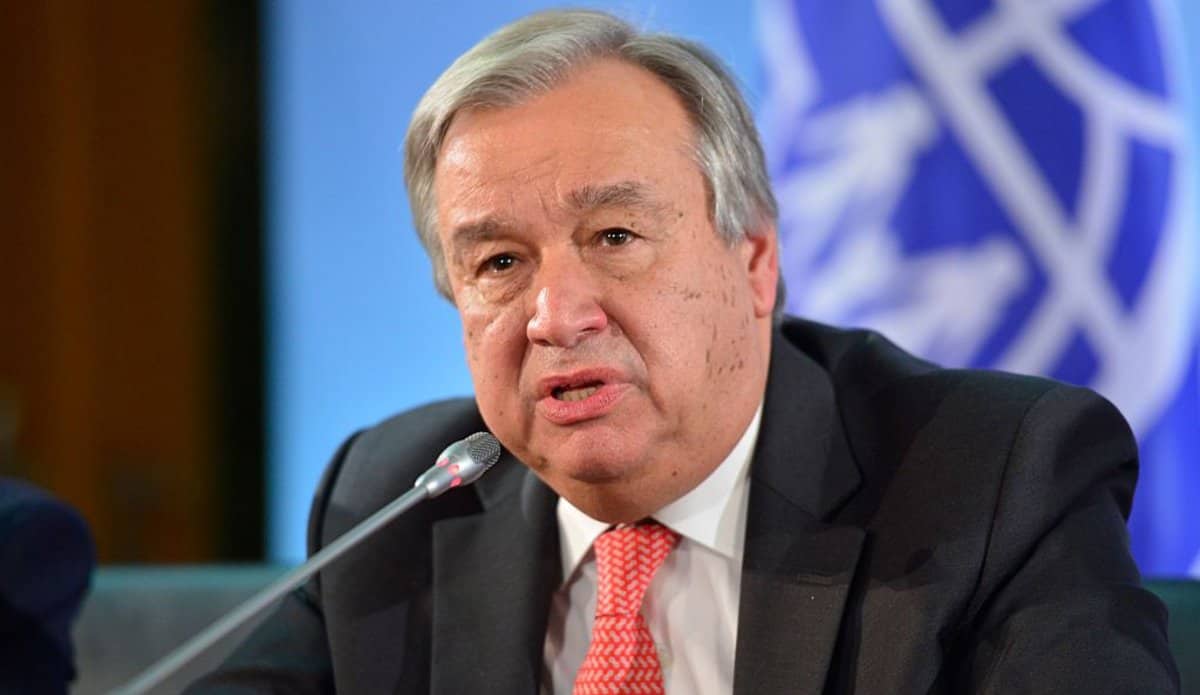Before the coronavirus crisis began, approximately one in three women and girls were subject to some form of violence in their lifetime. UN Secretary General Antonio Guterres reports that confinement, combined with the economic and social pressures brought about by COVID-19 lockdowns worldwide, have caused a “horrifying global surge in domestic violence.”
“For many women and girls, the threat looms largest where they should be safest: in their own homes,” Guterres said in a statement on April 5.
Echoing his previous calls for a global ceasefire, Guterres said, “today I appeal for peace in homes around the world…I urge all governments to put women’s safety first as they respond to the pandemic.”
The UN reports that calls to domestic violence hotlines in Lebanon and Malaysia, for example, have doubled since the beginning of the pandemic, compared with the same period in 2019.
The secretary general also expressed concern that police resources and shelters are tied up dealing with COVID-19 response efforts, and unable to respond to women who are desperately in need of support.
“Healthcare providers and police are overwhelmed and understaffed. Local support groups are paralyzed or short of funds. Some domestic violence shelters are closed; others are full,” Guterres pointed out.
Strict curfews and lockdowns enforced across the Middle East and North Africa have deprived many women of their limited means of escaping violence at home–work, travel, and family visits.
“Under these conditions, women are forced to react to the needs of the family to a large extent,” Lebanese social worker Rania Suleiman told Deutsche Welle (DW) on April 2.
“This means highly stressful situations daily. If they don’t meet the demands the way their husband wants them to, they run the risk of being physically abused,” Suleiman explained.
The German news agency also spoke with two MENA region women, Aisha and Leila (not their real names), who continue to suffer from domestic violence and are very concerned about the impact of COVID-19 on their already difficult home lives.
“I assume that I would be beaten and harassed even more than I currently am. I couldn’t take it,” Aisha said when asked what impact confinement would have on her relationship.
Leila explained that her husband’s frequent work trips and visits to family were her only escapes, and both options are now off the table due to government imposed COVID-19 curbs.
In Morocco, where courts handled 17,000 cases of violence against women in 2019, non-governmental organizations (NGOs) have stepped up to provide telephone hotlines and online support for abuse victims.
NGO Mobilising for Rights Associations (MRA) has collected a number of useful resources on its website to help women and girls facing violence at home. The National Union of Women (UNFM) has created a free mobile application called #Kolonamaak (“we are all with you”) and dedicated a 24/7 hotline to provide psychological and social support to women in need.
As with domestic violence around the world at any point in time, domestic violence during coronavirus lockdowns is likely to remain grossly underreported and to continue to have a devastating impact on women and girls, regardless of legislation and non-governmental initiatives.

